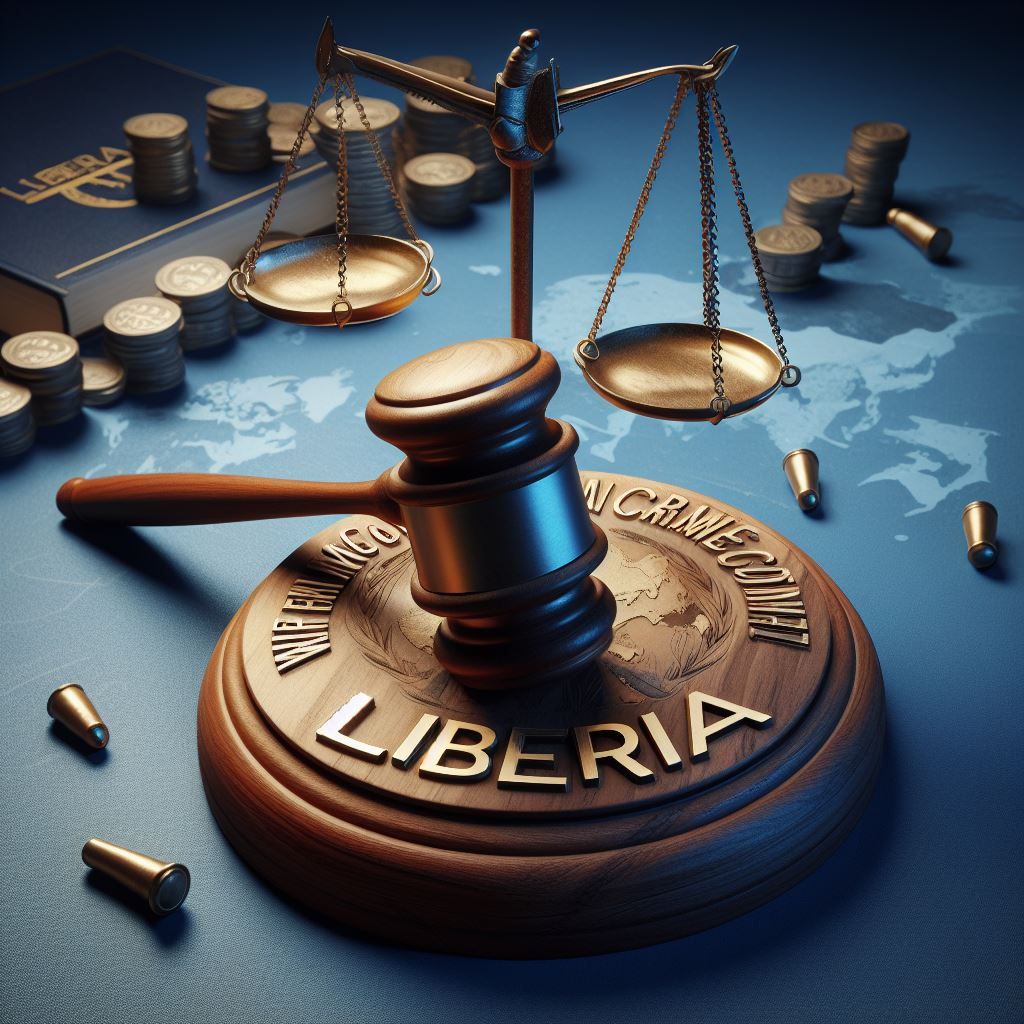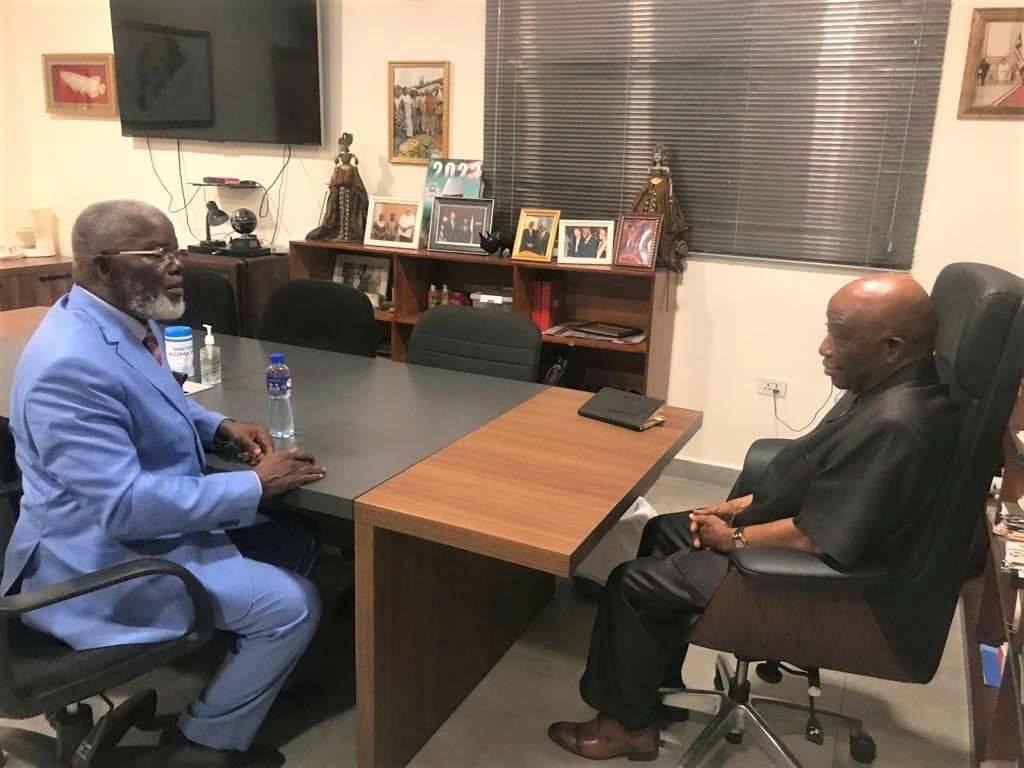In a historic move, Liberia’s lower house of parliament has approved a motion to establish a long-awaited war crimes court. This significant development comes more than two decades after the end of a devastating civil conflict that left scars on the nation.
The purpose of the House of Representatives’ resolution is to remedy the violations of human rights that occurred during the two civil wars in Liberia, which lasted from 1989 to 2003. The nation was destroyed, and an estimated 250,000 people died as a result of these battles.
Despite crimes including rape, mutilation, killings, and the forced enlistment of minors as soldiers during the conflicts, no trials have taken place in Liberia. One of the most important steps in holding offenders accountable and pursuing justice for victims is the creation of a war crimes court.

At least 40 lawmakers voted affirmatively for the passage of the resolution on March 5, 2024, to establish the War and Economic Crimes Court in Liberia and sent the instrument to the House of Senate for concurrence.
In contrast to the passage, Nimba County Senator Prince Yormie Johnson, has raise an alarm that the Liberia Legislature has passed legal instruments that grant amnesty to perpetrators of war crimes in Liberia.
Prince Yormie is a key figure in perpetrating war crimes, the killer of erstwhile President Samuel Kanyon Doe, and the former warlord of the defunct Independent National Patriotic Front of Liberia (INFPFL).
Making research, Liberia had indeed passed legal instruments granting amnesty to some perpetrators of war crimes. One notable example is the Comprehensive Peace Agreement (CPA) signed in 2003, which included provisions for the granting of amnesty to certain individuals involved in the country’s civil war.
The CPA paved the way for the establishment of the Truth and Reconciliation Commission (TRC), which was tasked with investigating human rights violations and recommending measures for reconciliation and healing. While the TRC did not have prosecutorial powers, it recommended the prosecution of individuals deemed responsible for serious crimes, while also proposing amnesty for others.
However, it’s essential to note that the issue of amnesty in Liberia has been highly contentious and subject to debate both domestically and internationally. Critics argue that blanket amnesty undermines efforts towards justice and accountability, particularly for victims of grave human rights violations.
In recent years, there have been calls for the repeal or revision of laws granting amnesty to war criminals, with a growing emphasis on the importance of accountability and the prosecution of those responsible for atrocities.
Key Points of the Resolution
• First Step: The procedure begins with a vote in the House of Representatives. The Senate will now discuss the resolution in greater detail.
• Presidential Approval: The resolution will be sent to President Joseph Boakai for final approval if the Senate gives its support.
• Drafting the Statute: A statute legally establishing the war crimes court will be drafted upon approval.
Boakai’s Dedication to War Crimes
In January, President Boakai promised to look into the potential of establishing a “war and economic crimes court” in his inauguration speech. His administration seeks to prosecute individuals who are most culpable for crimes against humanity and war crimes.
An Anticipated Moment
“Justice for the Liberian people has finally arrived“; said Jonathan Fonati Koffa, Speaker of the House of Representatives of Liberia, in response to the vote. Lawmakers chanted, “War crimes court, we want justice.,” as they danced in celebration of the ruling. The opposition Coalition for Democratic Change (CDC) Representatives Frank Saah Foko, Dixon Seboe, Abu Bana Kamara were among the jubilant lawmakers that ensured the passage of the resolution.
Obstacles to Come
Back in 2009, the Truth and Reconciliation Commission (TRC) had suggested that a court of this kind be established. But powerful suspected warlords, like Senator Prince Johnson, have escaped relatively unscathed. Johnson has said that a blanket amnesty given to all parties as a component of a peace accord protects him.
The country’s gaze is still focused on the future as Liberia makes this significant stride in the direction of justice. The war crimes court bridges the gap between past atrocities and a more just future by standing for hope for accountability and healing.
Liberian-born Emmanuel Orlind Cooper is an accomplished multimedia journalist with extensive experience covering news and stories on a variety of media platforms. Orlind's work frequently demonstrates his profound grasp of the region and its complexity, given his Liberian heritage.
Now residing in Woodbridge, Virginia, he keeps connecting with readers across continents with his perceptive journalism and sharing his viewpoint. He is well-respected in the sector because of his unwavering commitment to honesty and morality, which sets him apart in the field.
Orlind's work is more than simply his job; it's a dedication to giving voice to the voiceless, illuminating unsung tales, and advancing the worldwide conversation on important concerns. His goal as a journalist is to use the media's power to change the world, not just to disseminate information. He is a key player in modern journalism because of the inspiration, education, and engagement that his work consistently provides.


